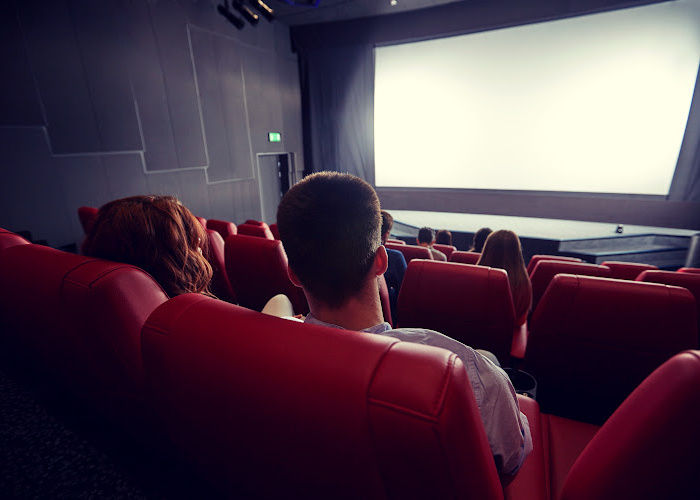It's crucial to know that students with autism and ADHD need special study strategies. Autism…

What Does Autism Friendly Screening Mean?
Going to the movies can be a fun and enjoyable experience for many people. However, for some individuals with autism spectrum disorder (ASD), the lights, sounds, and crowds at a typical movie theater can cause sensory overload. This can make it difficult or even impossible for some people with ASD to enjoy a movie.
That’s why some movie theaters now offer autism friendly screenings. These adapted showings create a more welcoming environment for people with sensory sensitivities.
What Is Autism Friendly Screening?
An autism friendly screening is a movie showing that has been specially adapted to be sensory friendly for people with autism.
Some of the common adaptations at an autism friendly screening include:
Lights are kept on dim: The theater lights are kept partially on instead of being totally darkened. This helps reduce anxiety for those with light sensitivity.
Sound is lowered: The audio volume is reduced to a more comfortable level. Loud sounds can be painful and overwhelming for some individuals with autism.
Designated quiet areas: There are special quiet zones set up where people can relax if they need a break from the crowd.
Sensory toys allowed: Fidget toys, headphones, and other sensory items are permitted to help people self-regulate.
Understanding environment: Staff are trained to be compassionate and accommodating. Judgment-free sensory breaks are encouraged.
The accommodations create an overall more sensory friendly environment tailored to the needs of people on the autism spectrum. This makes the movie experience more enjoyable and accessible.
Why Have Autism Friendly Screenings?
Autism friendly movie showings aim to provide equal opportunities for recreation and fun. About 1 in 44 children are diagnosed with ASD, so accessible entertainment is important.
Some key reasons theaters offer these specialized screenings include:
Sensory challenges: Unexpected loud noises, bright flickering lights, and crowds can trigger meltdowns in individuals with autism. Autism friendly screenings help minimize sensory overload.
Social challenges: Many people with ASD struggle in social settings like busy theaters. Quiet areas reduce anxiety and overstimulation.
Comfort: Families can relax knowing sensory issues will be accommodated. Individuals with autism can enjoy the movies without discomfort.
Inclusion: Everyone deserves recreation and entertainment. Autism friendly screenings promote social inclusion.
Understanding: These events raise autism awareness and encourage compassion in the community.
Providing accommodations helps ensure people of all abilities can experience the joy of movies. Autism friendly screenings promote equity and understanding.

Autism Friendly Screenings Promote Inclusion
Going to the movies allows us to have fun, unwind, escape to new worlds, and share stories together. Excluding people from that experience due to sensory issues is unfair and disheartening. Providing simple accommodations gives everyone the chance to enjoy the magic of movies.
Autism friendly screenings showcase how small adjustments enable big opportunities. With understanding and compassion, we can create a more inclusive world that enriches lives. Supporting local accessible movie events makes our communities more accepting and empowering. Because everyone deserves to be entertained, comforted and inspired by the brilliance of cinema.

Frequently Asked Questions
Here are answers to some common questions about autism friendly movie showings.
What are autism friendly screenings?
Autism friendly screenings are movie showings adapted to be more sensory friendly for people on the autism spectrum. Accommodations are made to create a comfortable environment.
How are autism friendly screenings different?
They differ by keeping lights dimmed, lowering sound, allowing sensory items, having quiet zones, and training helpful staff. These changes minimize overstimulation.
Why have autism friendly screenings?
They provide accessible recreation for people who struggle with noisy, crowded theaters. It promotes equity and understanding.
What accommodations are made?
Common accommodations include lowered volume, lights on dim, quiet areas, allowing sensory toys, and compassionate staff.
Can anyone attend an autism friendly screening?
Yes, all guests are welcome! But the environment is tailored to benefit individuals with sensory sensitivities.
Do I need documentation to attend?
No, you do not need a formal autism diagnosis. These events aim to be judgment-free.
How should I prepare for an autism friendly screening?
It helps to bring any items that comfort you, arrive early to get settled, and review accommodations offered.
What rules apply at the movies?
The same movie etiquette applies in terms of staying seated and not talking. But sensory needs are accommodated.
How do I find showtimes for autism friendly screenings?
Check theater websites, call local theaters, look for online listings, and search autism event calendars.
Why are these screenings important?
They promote inclusion so all people can experience entertainment. Small adjustments make activities accessible.



This Post Has 0 Comments